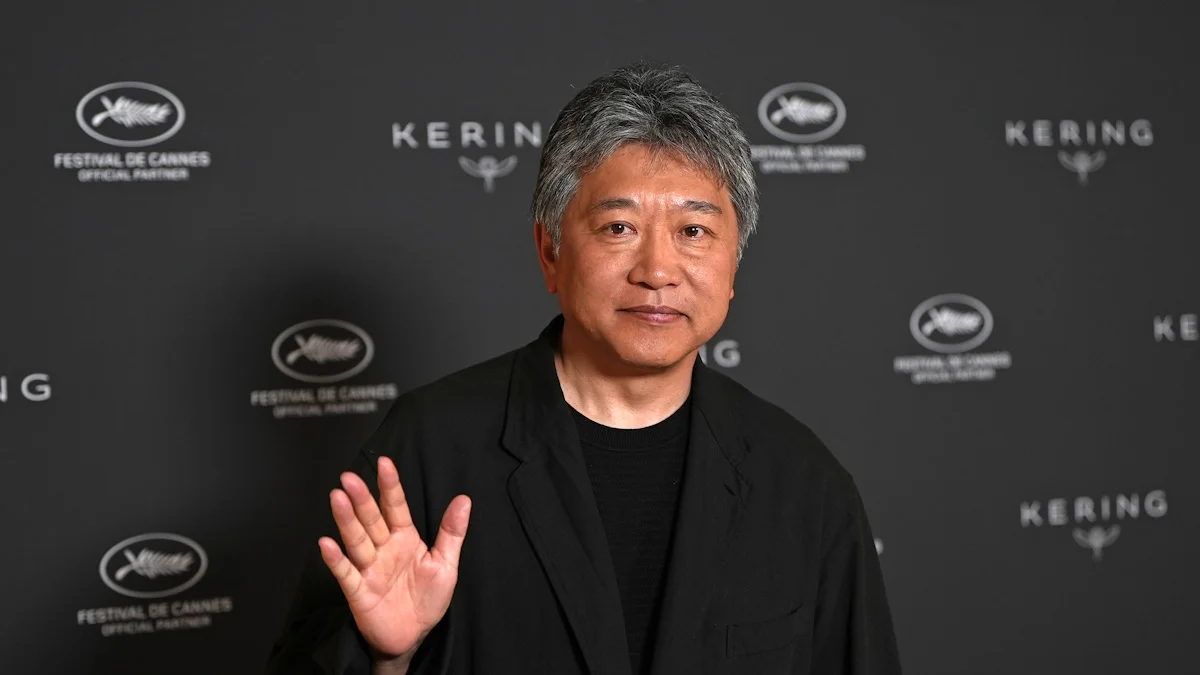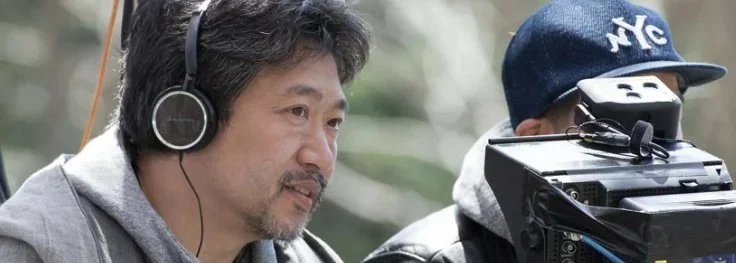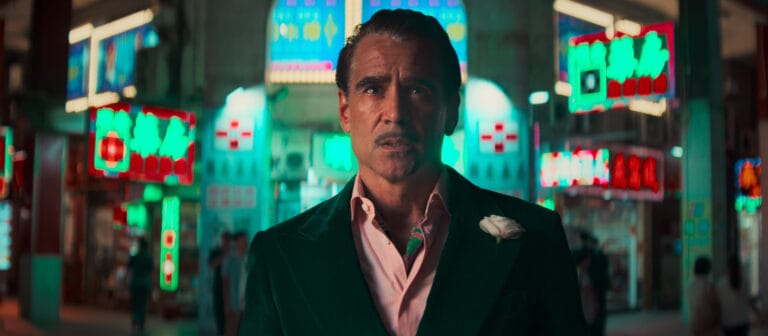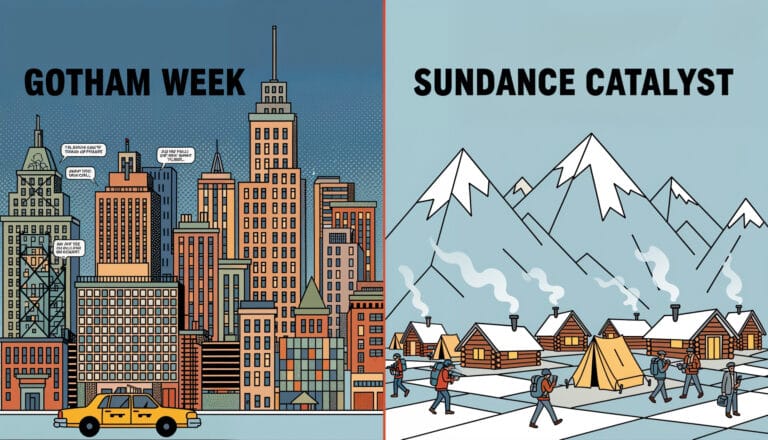- Indie film powerhouse Neon has acquired the rights to ‘Sheep in the Box,’ the highly anticipated next feature from Japanese master Hirokazu Kore-eda, for the U.S., U.K., and Australia.
- The film, set in the near future, marks a potential genre shift for Kore-eda, who is renowned for his contemporary, humanist family dramas like the Palme d’Or winner Shoplifters.
- This move highlights a growing trend of major distributors investing heavily in international, non-English language films, banking on sophisticated marketing and universal themes to achieve global success.
In the high-stakes world of independent film distribution, every acquisition is a calculated bet. But when a distributor like Neon—the company that turned Parasite from a festival darling into a historic Best Picture winner—makes a bold, multi-territory move, the entire industry takes notice. The recent announcement that Neon has acquired ‘Sheep in the Box,’ the next project from legendary Japanese director Hirokazu Kore-eda, is far more than a simple line item in the trades. It’s a powerful statement about the future of global cinema, the enduring value of auteur filmmaking, and the strategic brilliance that can elevate a foreign-language film to an international phenomenon. This partnership, which reunites the director and distributor after their successful collaboration on Broker, signals immense confidence in Hirokazu Kore-eda’s new film and offers a compelling case study for every filmmaker dreaming of a worldwide audience.
The Power Players: A Union of Auteur and Kingmaker
The significance of this acquisition begins with understanding the two forces at its center. Neon isn’t just a distributor; it’s a cultural curator. In less than a decade, the company has built a formidable reputation for championing bold, unconventional, and critically-acclaimed films, guiding them through the treacherous waters of the awards season with unparalleled savvy. They have a gift for identifying films that resonate deeply with both critics and audiences, crafting marketing campaigns that feel more like artistic movements than simple promotional pushes. This approach transforms their releases into must-see cultural events, creating a brand identity that promises quality and vision.
On the other side of the equation is Hirokazu Kore-eda, a filmmaker widely regarded as one of the great modern masters of cinema. His work, including masterpieces like Shoplifters, Nobody Knows, and After the Storm, is celebrated for its profound empathy, gentle pacing, and deeply moving explorations of unconventional families and societal outsiders. He has a unique ability to find extraordinary humanity in ordinary lives, a skill that has earned him countless international accolades, including the prestigious Palme d’Or at Cannes. This established track record of excellence makes Hirokazu Kore-eda’s new film an immediate event for cinephiles everywhere.
The reunion of these two powerhouses is what makes this deal so electrifying. It represents a perfect marriage of artistic integrity and strategic ambition. Neon knows how to take a film with Kore-eda’s artistic pedigree and ensure it isn’t just seen by the art-house crowd but becomes part of the broader cultural conversation. For independent filmmakers, the key takeaway is the importance of understanding a distributor’s brand. Studying Neon’s slate reveals a clear pattern of championing unique voices, a crucial lesson for creators looking to find the right home for their own projects.

‘Sheep in the Box’: A Glimpse into the Near Future
While details are still emerging, what we know about ‘Sheep in the Box’ suggests a fascinating evolution in the director’s celebrated filmography. The film is set in the near future and stars acclaimed actors Haruka Ayase and Daigo, pointing towards a project with both artistic depth and commercial appeal. This setting marks a subtle but significant departure for Kore-eda, whose stories are typically grounded in a very tangible, contemporary reality. Venturing into a near-future landscape opens up a world of new thematic and aesthetic possibilities, allowing him to explore his signature themes of connection, alienation, and what it means to be human through a speculative lens.
This creative pivot is where modern tools can become invaluable for filmmakers exploring new territory. Crafting a believable “near future” world requires meticulous planning and visual development long before cameras roll. This is where AI-powered concept art can be a game-changer. Using platforms to generate visual ideas allows a director to rapidly iterate on the look and feel of a world, from architecture and technology to wardrobe and mood. A tool like our Midjourney Mastery Guide provides the exact techniques needed to translate abstract ideas into stunning, cinematic-quality visuals, helping to establish a clear vision for the entire production team.
For creators, Kore-eda’s willingness to step outside his established genre is a powerful lesson in artistic growth. It demonstrates that a core thematic focus can be applied to new and exciting contexts. The practical tip here is to leverage technology to de-risk creative experimentation. Before committing to a full script or production, use generative AI to brainstorm and pre-visualize. An advanced toolset like the one offered in our AI Render Pro guide can help you build a compelling visual pitch deck, making it far easier to get collaborators and financiers on board with a bold new idea.
Global Ambition: The Multi-Territory Acquisition Strategy
Neon’s decision to acquire ‘Sheep in the Box’ for not just the United States but also the U.K. and Australia is a crucial piece of this story. This isn’t a piecemeal, region-by-region approach; it’s a unified, international strategy from day one. Securing a multi-territory deal for a non-English language film is a massive vote of confidence, signaling that the distributor believes the film has universal appeal capable of transcending cultural and linguistic barriers. It allows for a coordinated global marketing and release strategy, creating a wave of momentum that can build from one territory to the next.
This strategy is built on the foundation laid by previous international successes, many of which have primed global audiences for diverse cinematic experiences. Bong Joon-ho’s Parasite (a Neon release) shattered the glass ceiling for foreign-language films at the Oscars, proving that a brilliant story, masterfully told, can captivate the world. More recently, films like Anatomy of a Fall and Drive My Car have achieved both critical acclaim and impressive box office returns outside their home countries. Streaming services like Netflix and Mubi have also played a significant role, normalizing the experience of watching subtitled content and exposing viewers to a wider array of global storytellers.
The takeaway for filmmakers is that the path to a global audience is more accessible than ever, but it requires strategic thinking from the earliest stages of development. The story of Hirokazu Kore-eda’s new film proves that the market for thoughtful, character-driven international cinema is robust. The practical advice is to focus on universal human themes that can resonate across different cultures. When pitching your project, don’t just think about your local market; research international film festivals, co-production opportunities, and distributors known for championing global voices. A well-defined global strategy can dramatically increase a film’s potential for success.

The ‘Neon Effect’: Architecting an Awards Season Contender
Acquiring a great film is only half the battle; turning it into an awards-season juggernaut is an art form that Neon has perfected. This “Neon effect” is a potent combination of masterful marketing, strategic festival placements, and an almost prophetic ability to tap into the cultural zeitgeist. They don’t just sell a movie; they build a narrative around it, positioning their films as essential viewing and vital contributions to the cinematic landscape. This elevates their releases from mere entertainment to significant cultural events that voters and audiences feel compelled to engage with.
Their track record speaks for itself. With Parasite, they crafted a campaign that was as sharp and subversive as the film itself, building incredible word-of-mouth that culminated in a historic Best Picture win. For films like Triangle of Sadness, Portrait of a Lady on Fire, and Anatomy of a Fall, Neon’s campaigns were tailored to highlight each film’s unique strengths, whether it was biting social satire or profound emotional depth. They understand that in a crowded marketplace, a film needs a powerful story about the story to cut through the noise. This is where modern Filmmaking AI Workflows can offer an edge, helping teams analyze audience sentiment or even generate initial marketing concepts.
For any creator, the “Neon effect” serves as a crucial reminder that the filmmaking process doesn’t end when you call “cut.” The way a film is positioned and presented to the world is as vital as the craft within it. The practical tip is to think like a marketer from the outset. What is the core narrative of your film’s journey? Who is its ideal audience, and what is the most compelling way to reach them? Building a strong press kit, crafting a compelling director’s statement, and developing a clear marketing angle are no longer optional extras; they are essential components of a successful film launch. The buzz around Hirokazu Kore-eda’s new film will undoubtedly be amplified by this very effect.
Internal Links for Further Learning
- Craft cinematic visuals for your own “near future” concepts with our Midjourney Mastery Guide.
- Streamline your creative process from concept to post-production with these innovative Filmmaking AI Workflows.
- Get the ultimate toolset for generating stunning, realistic AI visuals with the AI Render Pro guide.
Conclusion
The acquisition of ‘Sheep in the Box’ is more than just another deal. It’s a convergence of masterful artistry and brilliant strategy, a testament to the enduring power of auteur-driven cinema in a globalized market. For filmmakers, creatives, and AI artists, it serves as an inspiring blueprint for how a unique vision can find its audience and achieve worldwide recognition. As we eagerly await more details on Hirokazu Kore-eda’s new film, its journey to the screen is already offering invaluable lessons on craft, strategy, and the art of making a mark on the world stage. To start bringing your own cinematic visions to life, explore our definitive guide, AI Render Pro, and discover how to craft stunning visuals for your next project.
FAQ
Who is Hirokazu Kore-eda?
Hirokazu Kore-eda is a world-renowned Japanese film director, screenwriter, and producer. He is celebrated for his intimate, character-driven dramas that often explore themes of family, memory, and social issues. His most famous work, Shoplifters, won the Palme d’Or at the 2018 Cannes Film Festival.
What is Neon known for in the film industry?
Neon is an American independent film production and distribution company known for its bold and critically-acclaimed slate. They have a reputation for acquiring festival hits and turning them into major awards contenders, most notably distributing Parasite, the first non-English language film to win the Academy Award for Best Picture.
Why are international film acquisitions becoming more common?
Several factors are driving this trend, including the global success of films like Parasite, the rise of streaming platforms that have exposed audiences to more international content, and a growing recognition that powerful, universal stories can resonate with audiences regardless of language or cultural origin.
SEO Details
Focus Keyphrase: Hirokazu Kore-eda’s new film
Meta Title: Why Neon is Betting Big on Hirokazu Kore-eda’s New Film
Meta Description: Indie powerhouse Neon acquires ‘Sheep in the Box,’ Hirokazu Kore-eda’s new film. We break down why this move matters for global cinema and indie filmmakers.
Slug: hirokazu-kore-eda-new-film-neon
Tags: Hirokazu Kore-eda, Neon, film distribution, indie film, Japanese cinema, film acquisition, arthouse cinema, international film
Cover Image Prompt: A cinematic, atmospheric wide shot of a futuristic but minimalist Japanese cityscape at dusk, subtle neon lights reflecting on wet pavement, a lone figure walking away from the camera. Style of Hirokazu Kore-eda meets Blade Runner, photorealistic, 8K.
Suggested Free Stock Keywords: film distribution, cinema, independent film, movie deal, arthouse
Discover more from Olivier Hero Dressen Blog: Filmmaking & Creative Tech
Subscribe to get the latest posts sent to your email.













